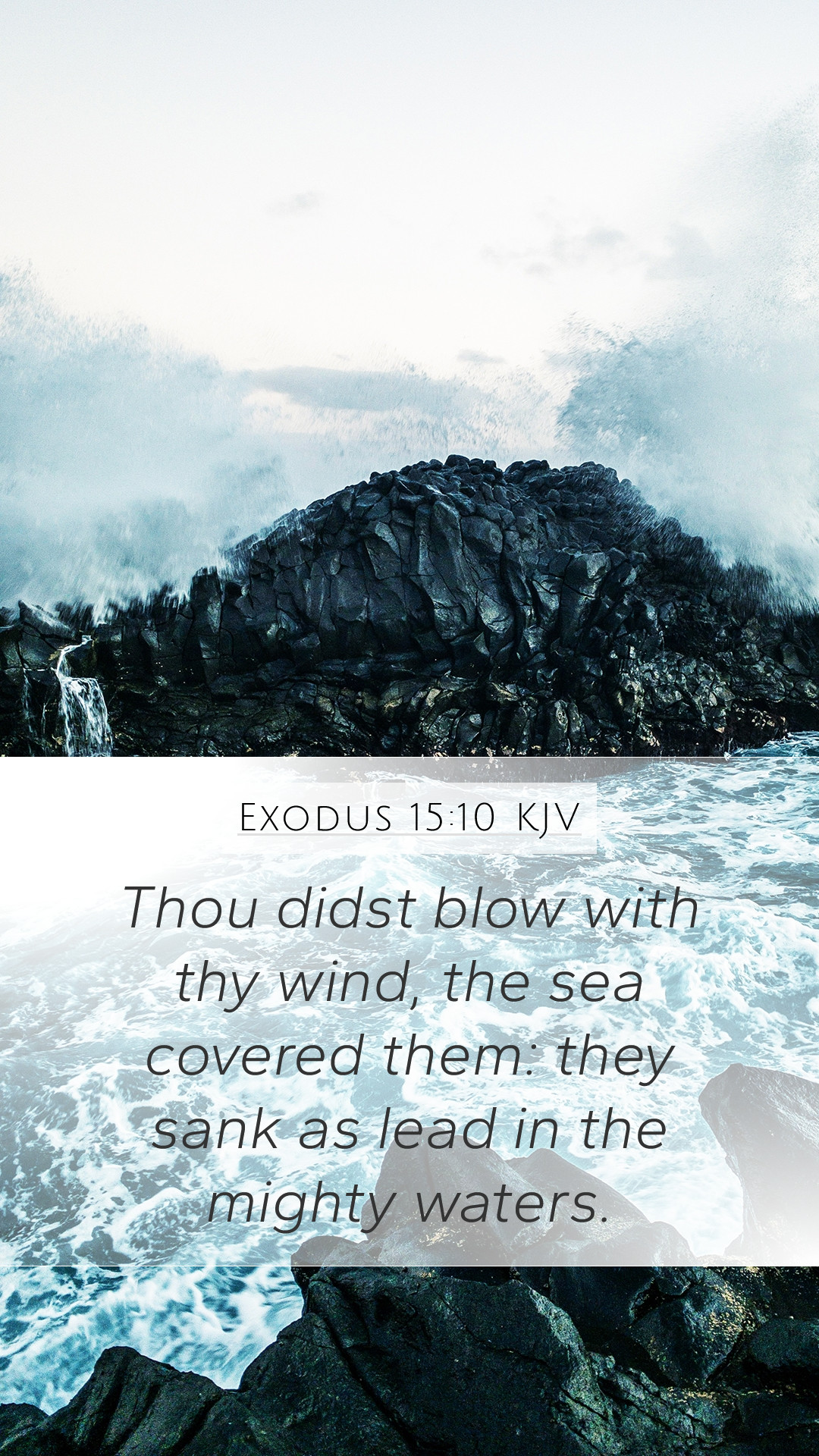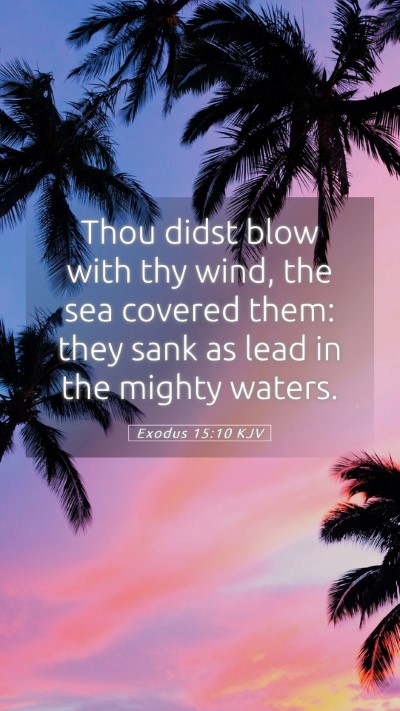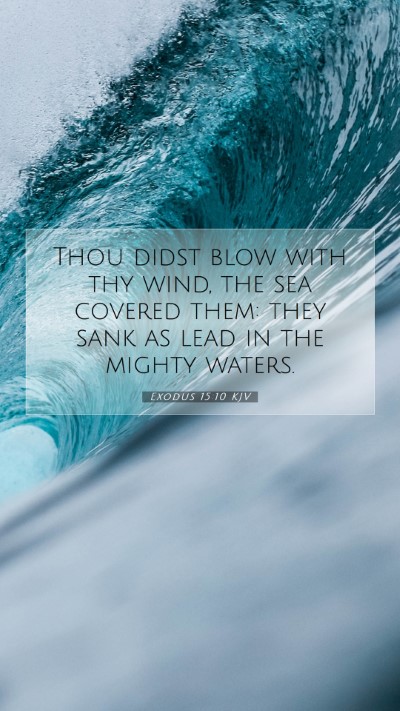Understanding Exodus 15:10: A Comprehensive Bible Verse Interpretation
Bible Verse: Exodus 15:10
Verse Text: "Thou didst blow with thy wind, the sea covered them: they sank as lead in the mighty waters."
Overview of Exodus 15:10
This verse is part of the Song of Moses, a triumphant declaration celebrating the Israelites’ deliverance from Pharaoh’s army at the Red Sea. It expresses the might of God and the total defeat of their oppressors.
Contextual Analysis
The context surrounding Exodus 15:10 is crucial for understanding its meaning. This verse occurs after Israel's miraculous crossing of the Red Sea, where God intervened to rescue them from slavery in Egypt. The song reflects gratitude and praise, while also displaying the themes of justice against the Egyptians.
Commentary Insights
-
Matthew Henry's Commentary:
Henry emphasizes the miraculous power of God as the source of the Israelites' victory. He points out that the Lord utilized the natural elements—specifically the wind—to achieve His purposes, demonstrating His sovereignty over creation. The imagery of the sea covers the Egyptians, representing the complete and utter destruction of the enemies of God’s people.
-
Albert Barnes' Commentary:
Barnes highlights the metaphorical language in this verse, illustrating the quick and profound defeat of Pharaoh's forces. He discusses how the comparison of the Egyptians sinking “as lead” signifies their loss of power and strength, underscoring the futility of opposing God's plans. It serves to encourage believers that adversaries of God cannot withstand His will.
-
Adam Clarke's Commentary:
Clarke provides insight into the role of divine intervention in the defeat of the Egyptians. He notes that the phrase "Thou didst blow with thy wind" indicates God’s active participation in the natural world to achieve deliverance for His people. Clarke draws attention to the theological implications, suggesting that this verse serves as a testament to God’s protection and judgment.
Theological Implications
Exodus 15:10 contains profound theological truths that explore God’s justice, power, and protective nature. It serves as a reminder of the consequences of rebellion against God, highlighting that those who stand against Him will ultimately be defeated. This verse also speaks to the hope of deliverance that God provides to those who trust in Him.
Application in Contemporary Life
This verse encourages believers to trust in God’s sovereign control over their circumstances. In challenging times, reminding oneself of God’s past faithfulness can bring hope and strength. Believers can draw parallels between their struggles and the assurance of God’s deliverance, finding solace in His mighty power.
Cross References
- Isaiah 43:16: "Thus saith the Lord, which maketh a way in the sea, and a path in the mighty waters."
- Psalm 106:9: "He rebuked the Red sea also, and it was dried up: so he led them through the depths, as through the wilderness."
- Revelation 15:3: "...great and marvelous are thy works, Lord God Almighty; just and true are thy ways, thou King of saints."
Conclusion
Exodus 15:10 not only narrates a historical event but also offers valuable insights into the nature of God and His dealings with humanity. Through a combination of powerful imagery and theological depth, it teaches about the importance of faith, the certainty of God’s intervention, and the ultimate triumph of good over evil. Understanding this verse contributes to broader Bible study insights and enhances one's Scripture analysis, allowing for a deeper understanding of Scripture.


